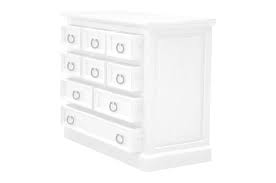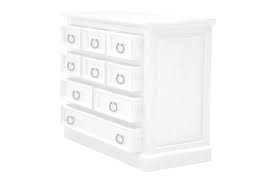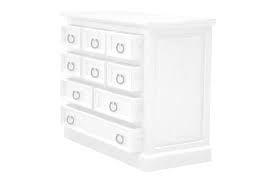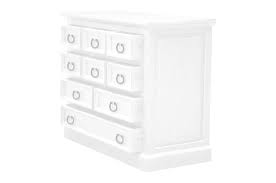No hot or even warm foods for the next two days. Do not take the pain killers without eating.

Dental implants are screwreplacements for the root
Most extraction wounds heal within seven to ten days.

Can i use mouthwash after tooth extraction and bone graft. Using this rinse more than two times a day will cause staining of your teeth. Talk to your dentist before your extraction Smoking is by far the leading cause of dry sockets.
You may use mouthwash (eg: Do not insert dentures or stayplates until instructed by dr. Care should be taken in the cleft area for the first 5 days.
You can eat basically any foods after the surgery. You can begin brushing the teeth right after the surgery. Oral hygiene is very important following a bone grafting surgery.
Just keep it very clean and consider using a waterpik until you can get back in. Gentle rinsing with water or salt water is recommended. Even the best mouthwash when used alone in the market today can never replicate the same degree of cleanliness that brushing and flossing gives.
After an extraction procedure it is all right to brush your teeth. As discussed at your consultation, smoking dramatically increases the risk of bone graft and sinus augmentation. Do it for 3 times.
Learn about tooth extraction aftercare in this article. Using a saltwater rinse promotes proper healing, which helps speed up the tooth extraction recovery process. Use the peridex (chlorhexidine) mouth rinse as prescribed, two times daily, with a gentle swishing for a minimum of 30 seconds.
Do not rinse your mouth or brush your teeth in the area of your surgery until the day after surgery. Do not rinse your mouth vigorously or use mouthwash for a minimum of one week after surgery; Please avoid toothpaste and oral rinses containing whitening agents for 7 days as they can interrupt clotting.
Do not use drinking straws. 6 more dos and don’ts. The short answer is this:
You can’t use a toothbrush at or near the extraction site until the area has healed — doing so could irritate the gum tissues. This includes vapes, electronic cigarettes or other forms. Use mouthwash often and avoid using tobacco products for at least the first week of aftercare.
If smoking after tooth extraction is inevitable for you, here are three more dos (and three don’ts) to make it as safe as it can possibly be. A bone graft is beneficial for patients who have lost bone in the jaw, which is often the result of tooth loss. If one has been inserted after surgery you may remove it the day after surgery to rinse the appliance and your mouth, and gently reinsert.
If a temporary tooth was placed, it can be removed as instructed by the doctor. Continue to clean your teeth 3 times a day from the day after your surgery. After your tooth extraction, you can resume brushing your teeth very gently and flossing.
This can cause aburning sensation. The first 24 hours after the procedure are very important for the healing process. Do not smoke for at least two weeks after surgery, if at all.
If desired, you can brush your teeth the night of surgery but rinse gently. The longer you can avoid smoking after extraction, the better! Keep your mouth clean by brushing areas around the surgical site, but be sure to.
However, this does not automatically make they safe for use following every kind tooth removal. Also, ensure you talk to the dentist or oral surgeon about additional oral care methods following a dental bone graft. For many who are going through the dental implant process, a bone graft.
This temporary tooth can be worn as long as there is no irritation to the gum tissue. Place an ice pack on the side of the surgery for 20 minutes intervals for the first 48 hrs after your procedure. After removing the cotton after one hour fill up your mouth with chilled water no moving it around just keep it in and swallow it slowly.
Normal conditions following surgery include some achiness, tenderness, muscle stiffness, facial bruising, and/or swelling. Take a lot of chilled fruit juices in the first two day. Use the prescribed mouthwash to gently direct a stream towards the surgery site to remove any food and plaque debris.
After 48 hrs, replace ice with warm moist heat. Do not disturb the extraction site with tongue or fingers. Taking extra precautions after surgery can help to minimize the risk of complications.
Do not eat or drink or rinse your mouth after using the medicated rinse. After a few weeks of use you may note slight staining of the teeth, like tea or coffee stain, this is a side effect from using the mouthwash and the stain can easily be removed. This rinse should be used in the morning and at bedtime after routine mouth care.
When can i use mouthwash after tooth extraction? Peak swelling occurs at 3 days postoperatively before subsiding. The day after surgery you should may also with a cup of warm water mixed with a 1/4 teaspoon of salt.
Talk to a dentist about bone graft aftercare. For the first 48 hours after extraction and grafting: Be careful with mouthwash as well, do not swish vigorously and let the mouthwash ‘dribble out’ instead of spitting.
Caring for the mouth and empty socket after a tooth extraction is vital to prevent painful complications. You should rinse your mouth carefully 4 times a day for at least one week starting from the day after your surgery. The mouth should be rinsed at least 4 times a day, after every meal and at bedtime.
The next day you may rinse your mouth with the prescription mouthwash, peridex, twice a. Avoid using any mouthwash containing alcohol as it can irritate the wound. After getting a tooth pulled, cleaning your mouth is more difficult.
As long as is not a recent bone graft it can wait until after covid 19 passes and we flattened the curve. If you use just mouthwash it can burn the wounds. Do not vigorously rinse your mouth as this may rinse away the blood clot however use the mouthwash with a gentle swishing motion.
Be careful to avoid vigorous rinsing because the bone graft granules can still be disturbed.




